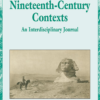
Negotiating authorship and (in)dependence around 1900: The case of Dutch literary magazine De beweging*
What does the concept of “autonomy” mean when it comes to authors and their practices? In the early twentieth century, Dutch writer Albert Verwey had strong views on the subject.
Lees meer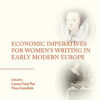
Economic Imperatives for Women’s Writing in Early Modern Europe
Economic Imperatives for Women’s Writing in Early Modern Europe delves into the early modern history of women’s authorship and literary production in Europe taking a material turn. The case studies included in the volume represent women writers from various European countries and comparatively reflect the nuances of their participation in a burgeoning commercial market for authors…
Lees meer
Duitse keurvorst betaalt Nederlandse dichteres
In 1654 verschijnt voor het eerst een Nederlandstalige gedrukte poëziebundel van de hand van een vrouw waarin religieuze onderwerpen níét de boventoon voeren. Dat is echter niet de enige reden waarom de bundel interesse wekt. De Dordtse Maria Margaretha van Akerlaecken (1605-na 1662) verkeerde financieel in zwaar weer en zocht met Den Cleefschen Pegasus steun…
Lees meer
Geld blijft tijd: over de rol van schrijvers in het literatuurbeleid
‘Geld is tijd’, schreef J.C. Bloem ooit: zodra schrijvers wat geld hebben, hebben ze even financiële ruimte om met literair werk aan de slag te gaan. Tientallen Nederlandse schrijvers gebruikten deze uitspraak als motto toen ze in de winter van 1962-1963 tegen hun beroerde sociaal-economische positie protesteerden. Ze weigerden literaire prijzen en dreigden de aanstaande…
Lees meer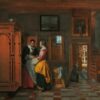
The Phenomenon of the Married Woman Writer in the Dutch Republic
In this blog post, Nina Geerdink makes a startling discovery. Even though it has often been noted that many Dutch women stopped writing once married, she finds that there was a sizable group of women who did continue or even start writing after getting married. Here, she shows that their motivations for writing were complex but often related to…
Lees meer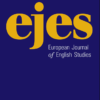
Reciprocal interactions and complex negotiations: three nineteenth-century models of patronage
This article suggests that patronage relationships can be interpreted in terms of gift exchange, arguing that this pertains in particular to late nineteenth-century forms of patronage.
Lees meer
De nieuwe gids and its Informal Patronage System
This paper focuses on the funding and finances of De nieuwe gids, a late nineteenth-century periodical believed by many to be the archetypical Dutch cultural magazine. The editors of De nieuwe gids introduced new ways of running their business and had new ideas about their role as professional writers and painters, about the pitfalls of creating for money,…
Lees meer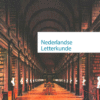
Een veelstemmig verhaal: Auteurschap in de Geschiedenis van de Nederlandse literatuur
dr. Gerard Bouwmeester, dr. Nina Geerdink, dr. Laurens Ham Authorship is a ‘trending topic’ in literary studies: specialists from all periods and languages have published widely on various topics such as posture, selffashioning, and autonomy. This contribution investigates how these recent debates found their way into the new series of literary histories published on behalf…
Lees meer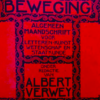
‘Geven en krijgen rond het tijdschrift De Beweging (1905-1919)’.
The Dutch poet Albert Verwey was editor of the cultural magazine De Beweging between 1905-1919. This article uses gift theory to investigate the alliances he forged with his publishers, with his readers, and with the writers he worked with, and takes stock of the ways he tried to keep the insolvent magazine financially afloat. Verwey…
Lees meer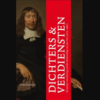
Dichters en verdiensten: De sociale verankering van het dichterschap van Jan Vos (1610-1667)
Over het algemeen wordt aangenomen dat broodschrijverij in de Republiek pas in de achttiende eeuw opkwam en in de negentiende eeuw een rol van betekenis ging spelen. Toch waren er lang daarvoor al auteurs die verdienden aan hun werk. Vooral uit de late middeleeuwen kennen we daar voorbeelden van. Hoe zat dit in de Gouden…
Lees meer
